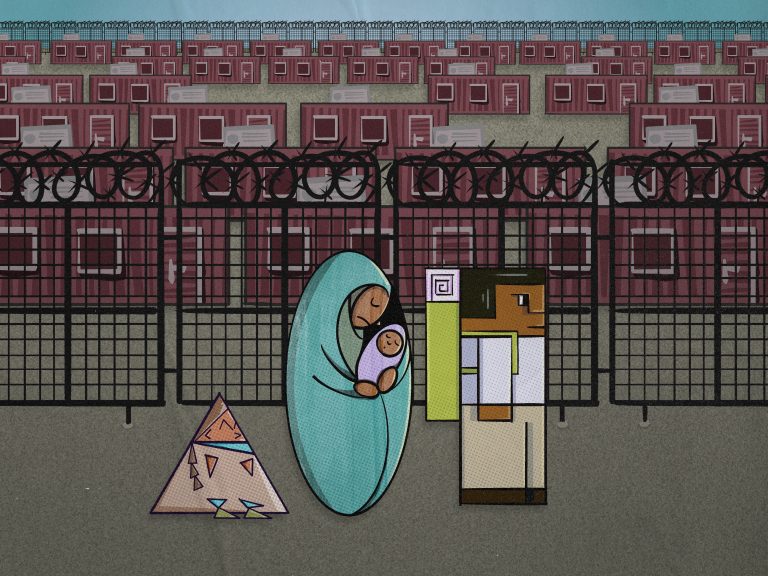No excuses for a family’s unlawful detention and starving
Translation is available for this content
Váltás magyarraThe European Court of Human Rights (ECtHR) has ruled against Hungary in another transit zone case. The asylum-seeking mother and her four children were unlawfully detained under inhuman conditions for 17 months. The Hungarian Helsinki Committee’s clients receive €12,000 in just satisfaction.

Z.L. and her family belong to the Hazara minority, an ethnic community particularly despised and persecuted in Afghanistan.
During their flight to Europe (on a journey through Iran, Turkey, Bulgaria, and Serbia), the husband and one child had to separate from the wife and four children. The former group managed to reach Austria, where they received residence permits, while the wife, Z.L., tried to obtain protection from Hungary. In December 2018, the mother and the four children legally entered the transit zone in Röszke, where they immediately applied for asylum.
Hungary, although allowing their entry to the transit zone precisely to enable them to apply for asylum, rapidly issued a decision refusing to examine their asylum application on the grounds that they had arrived via Serbia – despite their apparent persecution in Afghanistan. Hungary has continued to consider its southern neighbour safe from an asylum point of view ever since, even though the ECtHR and the Court of Justice of the European Union have already ruled that Serbia’s automatic designation as a safe transit country is unlawful.
Z.L. and her children were expelled first to Serbia and then to Afghanistan – the country they had fled and where they remained in obvious danger if returned.
After three months in the transit zone’s asylum sector for families, they were transferred to endure even harsher conditions in the immigration section of the transit zone, where the Hungarian immigration authority detaining them deprived the mother and her 20-year-old eldest child of food for four days. Only after the ECtHR ordered the Hungarian government did they receive food again, following the Hungarian Helsinki Committee’s interim measure request.
The family had been detained for 17 months. Such a prolonged detention in the transit zone clearly had serious consequences – especially for children, families, asylum seekers with special needs, and victims of torture. Three of Z.L.’s children were minors. One of them had a severe heart condition and needed medical care.
They were only released after the Hungarian government dismantled the transit zones on 21 May 2020, following the judgment of the European Court of Justice. Z.L. and her children went to Austria, and the family could finally reunite. They still live there today. The long period of inhuman detention was not without consequences: for a long time, Z. L. needed psychological care.
The Strasbourg court ruled on 12 September 2024 that the Hungarian state had violated the human rights of the Hungarian Helsinki Committee’s clients. Contrary to the government’s argument, the transit zone qualifies as detention. The detention had no valid legal basis, was arbitrary and unlawful, and was not subject to any remedy. The conditions of the children’s detention and the starvation of the adult family members were also unlawful and amounted to inhuman and degrading treatment. The five applicants received a total of €12,000 in compensation.
“We have won our 14th case against the Hungarian state in Strasbourg in relation to unlawful and inhuman transit zone detention of asylum-seeking families with children. Children incarcerated with barbed wire in metal shipping containers, constantly watched and guarded by armed guards and dogs in response to asking for asylum in Hungary. Of course, we are happy about the new judgment, but we also see that even today, Hungary often fails to guarantee adequate treatment to refugee and asylum-seeking children,” – said Barbara Pohárnok, the Hungarian Helsinki Committee’s attorney, who represented the asylum seekers.